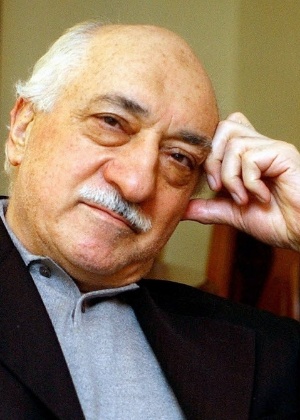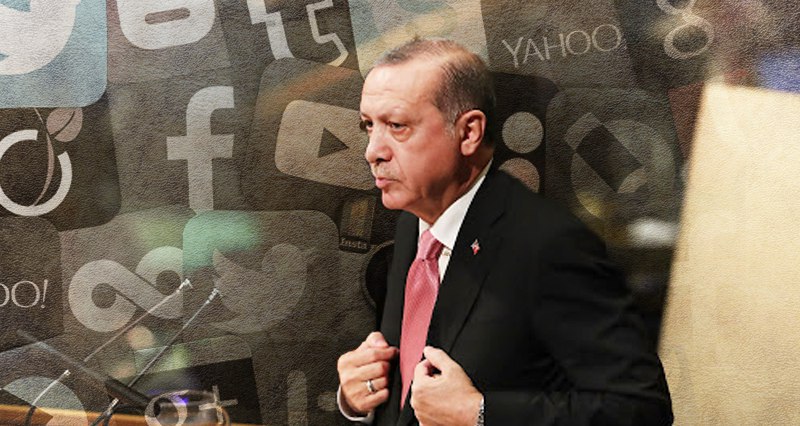Attacks against Turkish President Recep Tayyip Erdogan on various social media outlets have once again raised questions about the totalitarian nature of Twitter, Youtube and Facebook around the world.
After Erdogan’s family (his daughter and son-in-law) received abusive tweets about the birth of the fourth child in their family, the Turkish president spoke out against social media and declared that the authorities will be taking more control over Youtube, Twitter and Netflix.
Erdogan said that new legislation will be put into place by the end of next year to strictly regulate “immoral” social media use.
“Do you understand why we are against social media such as YouTube, Twitter and Netflix? To eradicate this kind of immorality,” Erdogan said.
“This kind of media does not suit this nation, this country. For this reason, we bring these to our parliament as soon as possible and we want our parliament to completely remove and control such social media channels”, he added.
“Turkey is not a banana republic. We disregard those who disregard this country’s administrative and judicial institutions,” he concluded.
After Erdogan’s speech, the head of the MHP Devlet Bahceli said he would support the initiative in this matter and tweeted that these were his latest posts on the social network.
Draft law
The draft law prepared by the ruling party of Turkey on new rules for working with social networks includes several functions to ensure that social network giants follow these rules and provide safer platforms for all users.
In 2015, Twitter appointed a coordinator for Turkey while ignoring calls by Ankara to set up an office in the country.

Other social media giants have also avoided establishing permanent missions in Turkey to avoid paying taxes. For example, Twitter alone generates $35 million a year of advertising revenue in Turkey, none of which is taxed at the local level.
The details of the bill, released by Hürriyet daily, include the protection of personal data and obliges social networks such as Twitter, Instagram and Facebook to have representatives in the country to remove illegal content and block access to malicious content. These measures are reminiscent of new rules put into place in Germany and France.
Party lawmakers noted that the rules would aim to prevent fake accounts and would penalize hate speech.
A Sore Problem in Turkey
Although Erdogan’s comments on social media are recent, his government has long considered legislative details that would allow it to take control of media giants such as Twitter, Facebook and YouTube, forcing them to remove content or risk heavy fines and limited access to their platforms. It was on these platforms that opposition groups of young people were formed to fuel the 2013 protests, therefore, Erdogan’s dislike of the popular platforms is understandable.
In the US (and not only) Erdogan was immediately accused of trying to censor social media and restrict the Turkish public’s access to independent news sources. Critics remembered Turkey blocking access to thousands of websites – one of Ankara’s most striking actions was a two-year ban on Wikipedia. Wikipedia, as the Turkish authorities explained, instead of contributing to the fight against terrorism, became part of a campaign to denigrate Turkey’s image on the international scene, particularly by refusing to remove texts on Ankara’s links with terrorist organizations.
At the same time, on the page of Wikipedia about the pro-American preacher Fethullah Gulen, who organized an attempt of state revolution in Turkey in 2015 and has its own powerful networks of influence, creates a positive image of the cult leader as a victim of the Turkish “regime,” while a group supporting Gulen on Facebook has about a million followers.

From impunity to totalitarianism
Attempts to take control of social networks may seem ridiculous and impossible to some. However, what is to be done if social networks start to dictate their agenda and go to extremes, on the one hand, to encourage attacks on unwanted countries or politicians (in the case of Turkey and its negative image created on popular platforms, it is especially relevant), and on the other, to block ideologically unwanted posts and comments in a totalitarian manner?
Yes, the attempts to ban something as ubiquitous as Facebook may seem ridiculous, but if the social networks loaded with their own ultra-liberal agenda are not controlled at all, it will certainly not be a laughing matter: they will start to form a political agenda instead of the state. At the same time, these platforms do not bear any responsibility for the citizens of a particular state.
The problem is not the totalitarianism of strong leaders, as the liberals are trying to convince us. On the contrary, the problem is precisely the totalitarianism of commercial giants who are ready to destroy the identity and statehood of entire countries for their own profit.
It is important to note that Turkey has tried to create an alternative YAZBEE application – so far it has not taken root, but the country has already had experience, and if necessary it can be improved and made convenient and interesting to use.
Thus, Turkey has once again put the most important questions on the agenda: where are the boundaries of impunity for social networks and what to do with them? UWI will continue to follow this story and the Stop Hate for Profit campaign.
















Leave a Reply